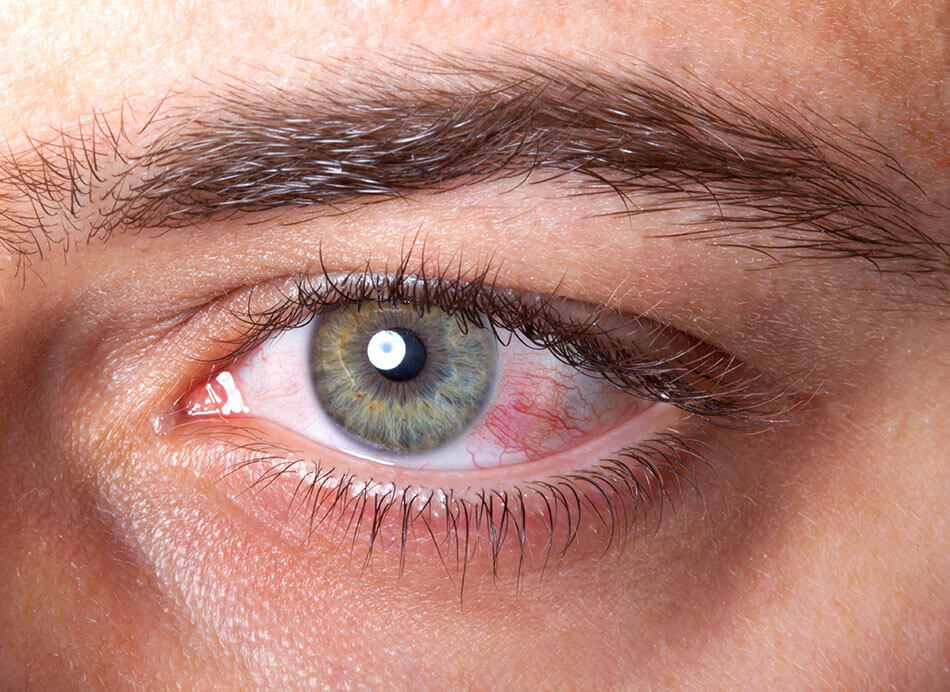Can Contact Lenses Harm Your Eyes? What You Really Need to Know About the Hidden Risks
When contact lenses first came into your life, they likely felt like a small miracle. The freedom of tossing your glasses aside for driving, workouts, nights out was liberating. But if you’ve ever come across headlines about serious infections, corneal ulcers, or even vision loss tied to contact lens use, you’re not alone in wondering: Are contact lenses actually safe for your eyes?

The reality is nuanced. While contact lenses are typically safe and extremely popular (worn by about 45 million Americans), they aren't fully risk-free. And if lenses are used improperly, those risks while uncommon can worsen.
Let us examine the dangers as they actually exist, the warning signs to look out for, and the common sense guidelines that all contact lens users should abide by in order to preserve their vision over time.
Can Your Vision Be Affected by Wearing Contacts?
In a nutshell: yes, if misused. But before we worry, let us educate ourselves.
When used properly, the majority of lens types including soft, hard, daily wear, and extended wear are surprisingly safe. However, even little mistakes in usage or hygiene might cause issues. Furthermore, even uncommon issues can have a significant impact on thousands of people in a nation the size of Spain that wears contact lenses.
The Most Typical Issues with Contact Lenses

Although wearing lenses need not be harmful, your eyes will alert you to any abnormalities. Keep an eye out for:
Itching, redness, or a scratchy sensation
swelling in the eye area
Vision blur or light sensitivity
Often known as pink eye, conjunctivitis
Open sores on the transparent surface of the eye are called corneal ulcers.
Infectious keratitis, an infection of the cornea that may be fatal
If you have been wearing lenses for longer than is advised, little irritation may go away in a day. However, symptoms that are unpleasant or persistent need immediate attention. Take out your lenses and give your eye doctor a call right away.
Do you sleep in your contacts? Here's Why It is Not a Good Idea
Sleeping with your contact lenses in is one of the most frequent yet dangerous mistakes you can make. You are playing with fire, or at least your corneas, unless you are wearing lenses that have been specially approved for prolonged wear, and even then, there are some risks involved.
Doctors released a collection of warning stories in 2025:

During a hunting trip, a man fell asleep in his glasses and developed a corneal ulcer.
After sleeping with her lenses on a daily basis for years without seeing an eye doctor, a woman eventually contracted a serious infection that caused her vision to deteriorate.
For two weeks in a row, another man wore his lenses. The outcome? Both eyes have corneal infections.
Following lengthy antibiotic rounds, several individuals made a full recovery. Others required corneal replacements. Some never fully recovered their vision.
The CDC estimates that up to one million visits are made to clinics and emergency rooms annually for contact lens-related issues, despite the low estimated risk of keratitis (about 2 to 20 per 10,000 lens users).
A Smart Contact Lens Routine: Easy Routines, Significant Effects
If you wear contact lenses, you are well aware of how natural it can feel. However, complacency may start to creep in there. Here's how to protect your eyes without making your life too complicated:
Use only the lens solution that has been prescribed by your eye specialist. Do not switch brands carelessly or do it yourself.
Before handling lenses, wash your hands. No shortcuts.
Never rinse your lenses with tap water (or worse, saliva) or put them in your mouth.
Always take out your contacts before removing makeup, and apply makeup after your lenses have been inserted.
Replace your case every three to four months and keep it dry and clean.
Keep to the timetable. Avoid wearing too many daily or weekly lenses. Higher risk = expired lenses.
Even if you feel fine, get your eyes examined once a year.
Pay attention to your body. Blurred vision, discomfort, light sensitivity, or redness? Remove the lenses right away and speak with your eye doctor.
Additionally, report any severe side effects you have had to the FDA MedWatch program, even if they have passed. These reports can result in product safety alerts and aid in the protection of other users.
However, they expect to be respected. This is not the place to take shortcuts or disregard caution. Although they are uncommon, infections and corneal injury are real and avoidable.
Therefore, it can be worthwhile to reconsider wearing glasses more frequently or to discuss options like daily disposables or even vision correction surgery with your eye doctor if you are having trouble keeping up with the lens care regimen.
Your eyesight is too valuable to risk. Ultimately, whether or not they are framed by spectacles, healthy eyes are always the greatest accessory.
What's Your Reaction?




















